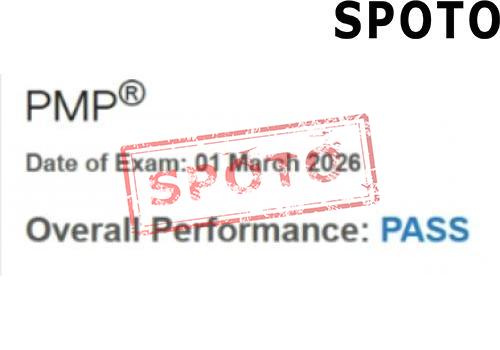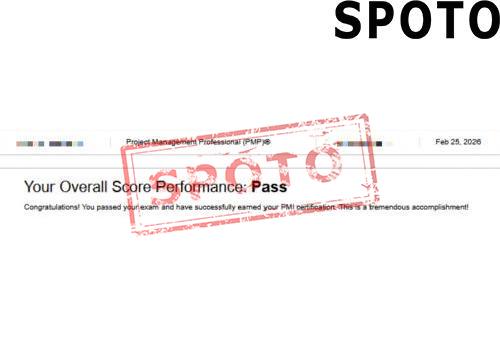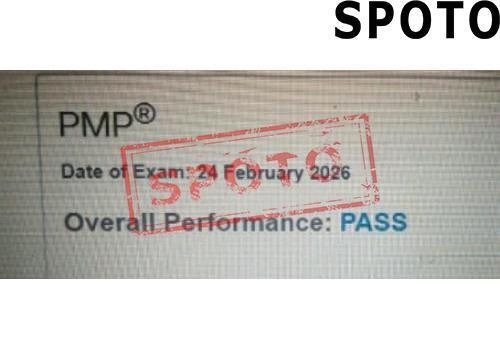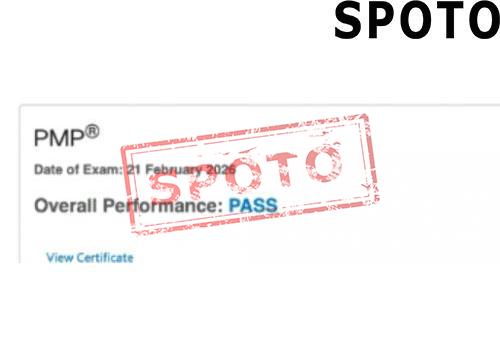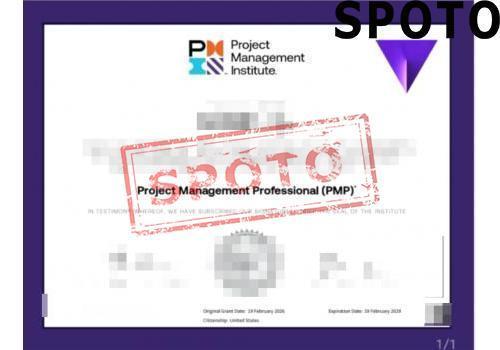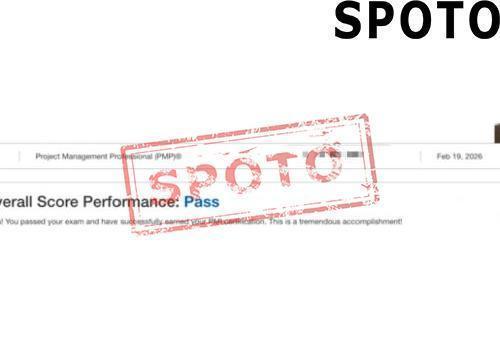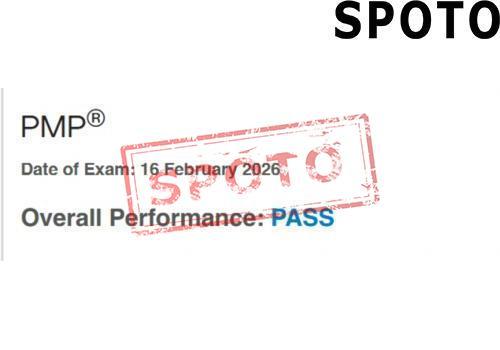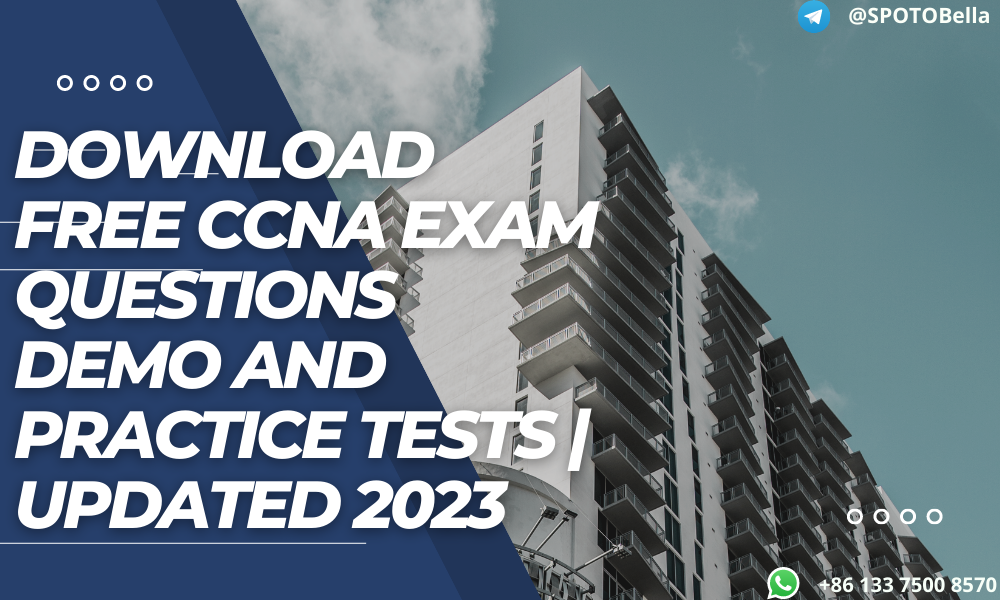 1. Take on the PMBOK® Handbook.
1. Take on the PMBOK® Handbook.The PMBOK® Handbook serves as a major reference for the PMP test. Take advantage of this and use the guide as your study's road map. Every week, set aside time to study one of the PMBOK® Guide's knowledge areas. Start with the actual guide before moving on to other study materials. This will aid in your grasp of each topic because other study guides frequently repeat the material and provide the same subject from various perspectives.
Make the knowledge areas of the PMBOK® Guide more manageable by studying one process per day. You can create a clear plan for daily and weekly study milestones by doing this.
Just learning everything by heart won't be sufficient. Make an attempt to thoroughly comprehend things and study them with attention and concentration. This is crucial since the PMP® exam questions will gauge how successfully you can put these principles, ideas, and concepts into practice. Several questions describe a problem in terms of its context. They purposely offer irrelevant information while also providing you with sufficient information to get the best conclusion.
Take a break after finishing a chapter of the PMBOK® Guide before reviewing it. Each reading will make it easier for you to comprehend. By the third time, the notions will have been ingrained in your memory, making it simpler to assimilate the material. For the most up-to-date information on all the knowledge areas, procedures, concepts, and formulae related to becoming a PMP, make sure to consult the PMBOK® Guide, which was most recently updated to version 5 by PMI®.
Also, you will need to stay up-to-date on project management ideas and adjustments made since the previous edition (PMBOK® Guide version 4). An extensive list of modifications from the PMBOK® Guide version 4 may be found in Appendix X1 of the PMBOK® Guide version 5. Some of these modifications include an increase in the number of processes from 42 to 47 and an increase in the number of knowledge areas from nine to ten (with the creation of a knowledge area called "Project Stakeholder Management").
2. Employ a Reliable PMP® Study Guide
A strong PMP® textbook is essential. Rita Mulcahy and Andy Crowe are two of the best authors for PMP® candidates. Studying for the exam could take up a significant amount of your time, and will require a great deal of commitment. Good preparation material will help you know what and ease your PMP exam prep. Here is the list of PMP sample questions and answers that test your knowledge and your ability to apply your learning in difficult real-life scenarios.
For instance, managing the inputs, tools, techniques, and outputs (ITTOs) of each process will be one of your challenges. Before diving into the ITTOs, several study guides advise PMP® hopefuls to brush up on the fundamentals (such as why a process is utilized, what the process is all about, and when the process is used). You will be able to identify the links between the processes and have a better understanding of them if you focus on the fundamentals first. The ITTOs are not required to be memorized, which will cut down on the amount of time needed to prepare for questions on these subjects.
3. Check out the PMP Exam Prep Workshops
If you'd prefer to learn in a classroom setting or require more one-on-one engagement, PMP test preparation seminars are a fantastic option. These are an excellent method to meet other aspirant project management professionals in your area in addition to networking through a PMI® membership. The fact that these seminars typically satisfy the 35-contact-hour requirement, which is a requirement for submitting an application to take the PMP exam, is another advantage of them.
4. Attempt online workshops for PMP exam preparation
Online resources for PMP test preparation are also plentiful. These online training programs frequently cost less than traditional workshops. Select the strategy for studying that works best for you. Before making a decision, make a lot of comparison shopping and study customer reviews.
5. Use online PMP exam simulators to your advantage
Online practice PMP examinations are offered by PMP® simulators. They put the candidate through a test with inquiries that mimic the structure of the PMP® exam. They also try to mimic the exam environment so that you become used to the pressure and time. These are an excellent tool to determine how well you have prepared.
6. Recall your flash cards.
Flashcards, whether printed or digital, are a practical, affordable, and tried-and-true method of PMP test preparation. Downloaded flashcards can be printed or browsed through on a computer or smartphone. Making your own flashcards can also be a huge assistance when you're studying.
7. Participate in discussion forums and study groups
You can greatly benefit from joining study groups and discussion forums to be ready for the PMP® exam. You can significantly shorten the amount of time needed to study for the exam by actively participating in study groups and discussion forums. You can also help others pass the exam, get your own questions and concerns answered, learn more about a number of helpful resources, and assist others in passing the exam.
